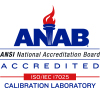 Posted on
Posted on

Hydroponic farming has certain inherent advantages. Plants grown hydroponically will mature on average 25% faster and deliver up to 30% greater yield than plants grown in soil. Creating the conditions necessary for such an increase in plant efficiency requires very close monitoring of the growing environment.
Knowing exactly what conditions your plants are growing in at every stage of plant development is key to achieving and sustaining enhanced yields. A key practice in realizing maximum plant growth and crop yields is data acquisition. Although acquiring data manually is fairly common in the hydroponic industry, it leaves too many opportunities for critical data points to be missed.
A seamless/continuous data stream could mean the difference between catching a problem early and correcting it before it becomes fatal to the plants and losing an entire crop to an easily correctable imbalance. Another common practice for those manually acquiring data is the grower will test multiple reservoirs in separate grow rooms and isolation tents with the same equipment. This practice increases the potential of transferring harmful organisms from one reservoir to the next.
Many growers use a low cost data collection equipment that is not lab calibrated. Some of these devices require regular calibration sometimes between uses. Inaccuracies in data collection due to inaccurate equipment and collecting critical information with faulty equipment can result in slower growth and lower yields, thus increasing crop cost by lowering growth efficiency. In short, the longer a plant needs to be under lights in nutrient solution the more costly a crop becomes to produce. Lowering the profit of a given crop can often break a hydroponic business.
This is where wireless data logging comes into play. Capturing and archiving your grow data automatically puts a grower at a distinct advantage in this fast growing and competitive industry. Knowing exactly what contributed to a successful crop will lead to much higher yields and growth efficiency with every crop. Through analysis and comparison of acquired data from crop-to-crop, a grower will understand and quantify the success and/or shortcomings and can either repeat or improve upon the known conditions. Additionally, continuous, uninterrupted data logging can help to identify a problem before it becomes harmful or detrimental to crop efficiency. Improving data quality, accuracy and continuity is vital to success in the hydroponic industry.






